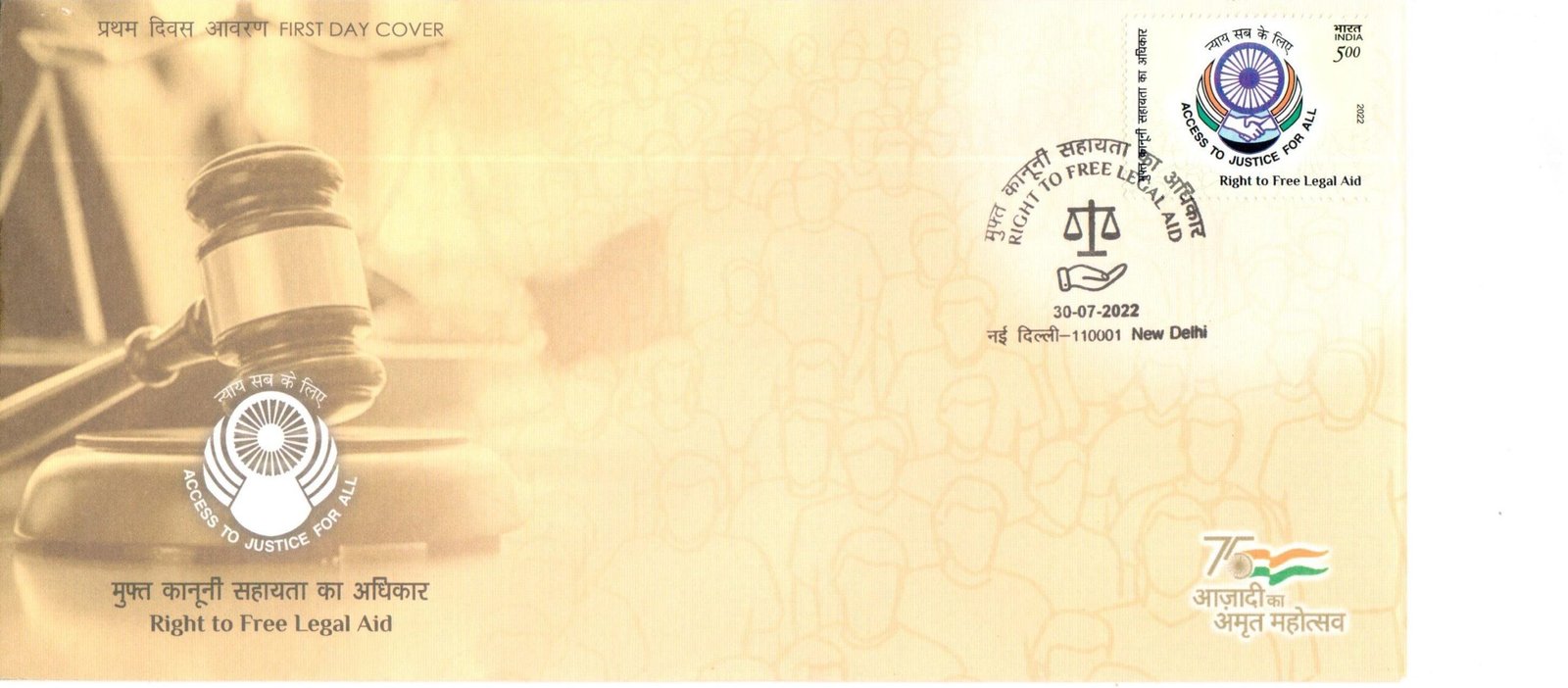“Justice for All”

Technical Data
| Date of Issue | July 30, 2022 |
|---|---|
| Denomination | Rs. 5 |
| Quantity | 201,600 |
| Perforation | comb 14 |
| Printer | Security Printing Press, Hyderabad |
| Printing Process | Wet Offset |
| Watermark | No Watermark |
| Colors | Multicolor |
| Credit (Designed By) | Sh. Brahm Prakash |
| Catalog Codes |
Yvert et Tellier IN 3487 Stanley Gibbons IN 3820 Michel IN 3810 |
| Themes | Lawyers-Advocates | Seals(Emblems) |
Constitutional Foundations
The Constitution of India is built on multiple fundamentals, with equality and justice standing as its guiding beacons. The Preamble emphasizes three dimensions of justice social, economic, and political highlighting their relevance at all times. To ensure these ideals, the concept of a welfare state is enshrined under the Directive Principles of State Policy.
Article 39A and Access to Justice
Article 39A of the Constitution guarantees the idea of access to justice. Access means bringing justice within the reach of every person as a matter of right, without hassle or hindrance. In this context, legal aid emerged in the early 1980s in India as a means to make justice truly accessible.
Historical Background
After independence, despite becoming aware of their rights, many citizens particularly the poor and marginalized remained unable to approach courts due to poverty, ignorance, and lack of resources. Recognizing this need, the Legal Services Authorities Act was enacted in 1987, establishing legal services institutions across the country under the supervision of a national authority.
Voice for the Marginalized
Large sections of Indian society still suffer from legal incompetence, lacking the means to assert their rights. Free legal aid provides these citizens with a voice and support system. It not only ensures redressal of grievances but also spreads legal awareness, sensitizing people about laws and mechanisms for justice.
Lok Adalats: A Step Towards Justice
The movement for free legal aid achieved a milestone with the establishment of Lok Adalats, where disputes both pre-litigation and pending are resolved amicably. These forums have recorded remarkable disposals of cases, creating a strong impact by ensuring faster, inexpensive, and accessible justice.
Constitutional Mandate
Legal aid emanates from Article 14 (Equality before Law) and Article 21 (Right to Life and Liberty), forming two corners of the Golden Triangle of the Constitution. Thus, free legal aid is not just a service but a constitutional guarantee, ensuring that the downtrodden are never left behind and are always supported in times of need.
Philatelic Tribute
The Department of Posts proudly issues a Commemorative Postage Stamp on Right to Free Legal Aid, honoring this constitutional promise and reaffirming India’s commitment to justice for all.
First Day Cover

